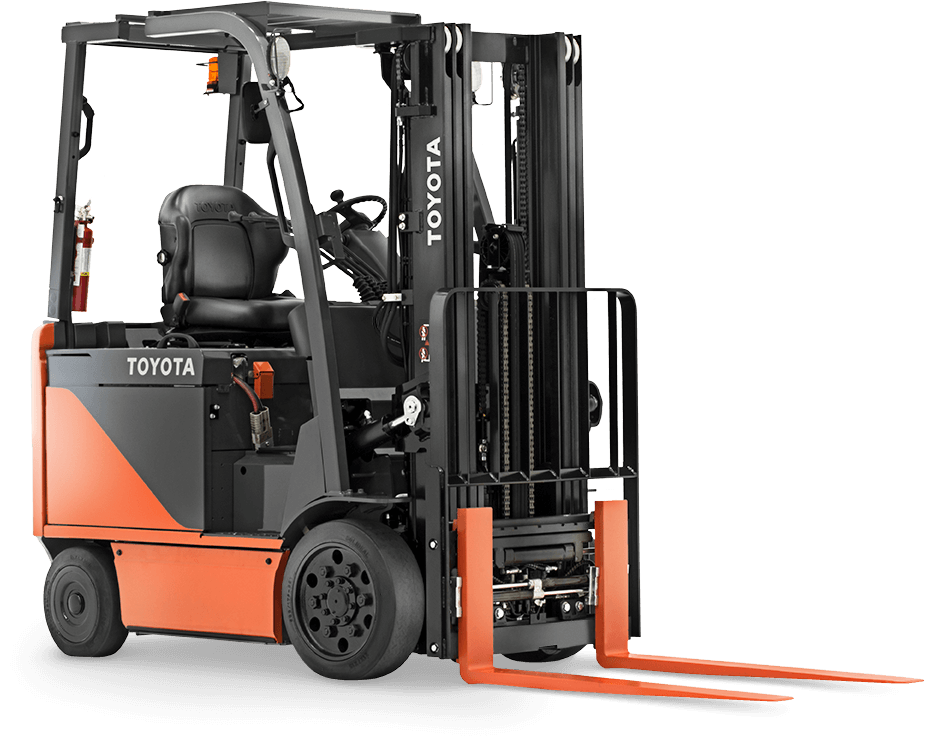Is an Electric Forklift the Right Choice?

Every type and model of forklift has unique advantages. Safety and productivity require that you use the right forklift for your application.
Electric forklifts are a great fit for warehouses and manufacturing facilities that require primarily indoor use. If you are concerned about fumes or noise and you operate forklifts indoors, an electric forklift may be the best fit
The Advantages of Electric Forklifts:
- Lift capacities of up to 12,000 LBS
- Operating costs can be lower than internal combustion models
- Electric forklifts charge at a charging station, so there is no need for fuel storage
- Cost for electricity can be significantly lower than the cost for fuel
- Electric forklifts produce zero emissions during operation
- No noise with the exception of the back-up alarm
- Greater stability because there is a lower center of gravity
- No propane tank at the rear of the forklift
- Automatic braking reduces wear and reduces fatigue for the operator. As soon as the operator takes their foot off of the accelerator, braking action begins
- Electric forklifts do not require engine oil or coolant fluids, so replacing and disposing of these fluids is not necessary
- Longer maintenance intervals
Disadvantages of Electric Forklifts:
The technology of electric forklifts grow every day and sales have outpaced that of traditional internal combustion forklifts for a few years, but electric forklifts are not suitable in all applications. Check out some potential disadvantages of electric forklifts:
- Battery charging stations must be installed
- Voltage requirements may be an issue with older facilities
- Typically a higher upfront cost
- Heavy batteries may require a special lifts for changing
- Limited to lifting 12,000 lbs. and under.
Toyota’s Internal Combustion forklift line can lift up to 51,000 lbs.
To learn more about electric forklifts and if they are right for you, contact our Sales Department.
